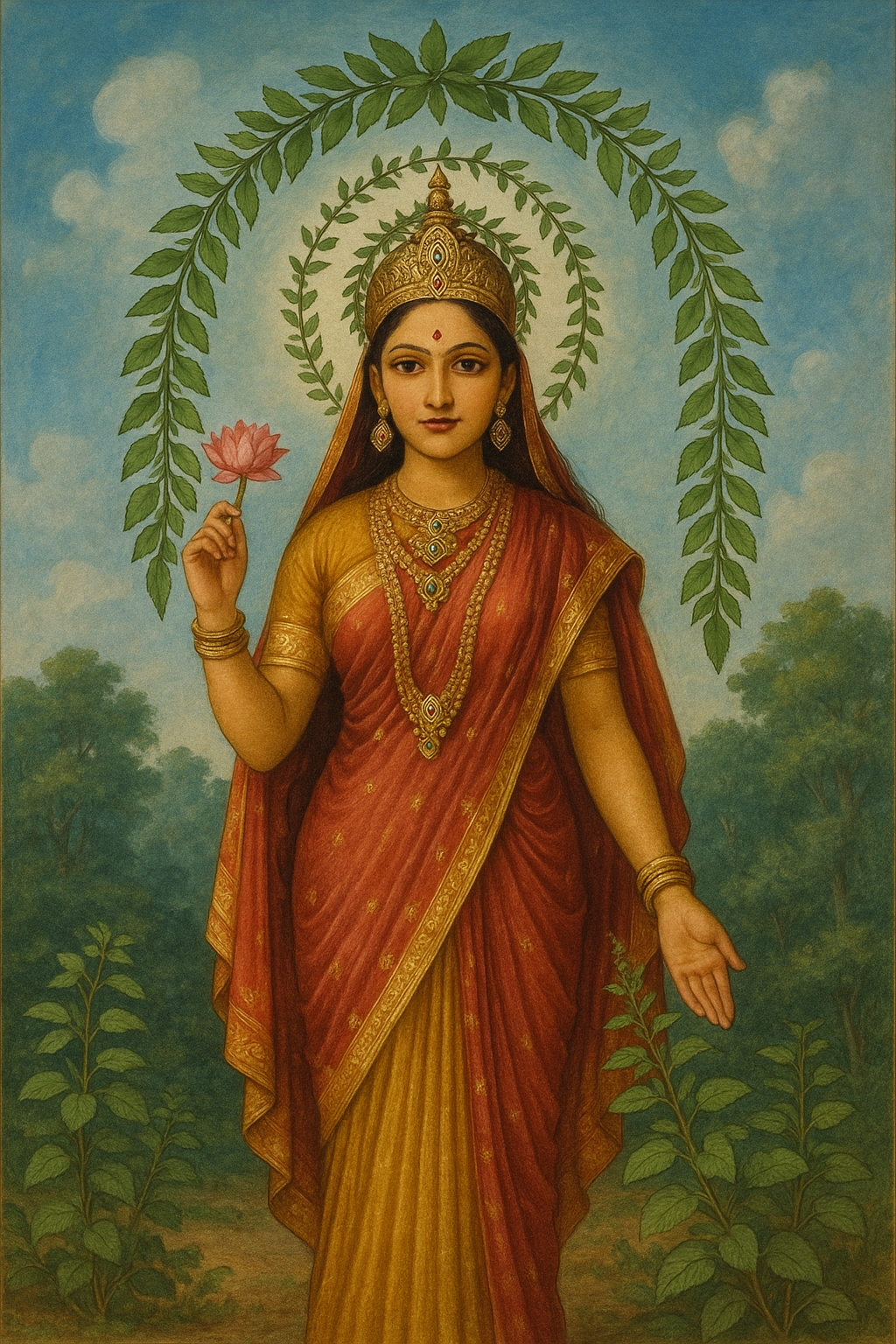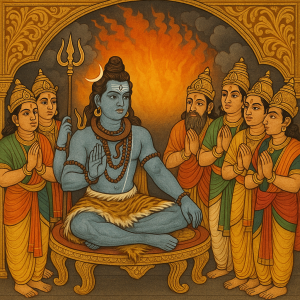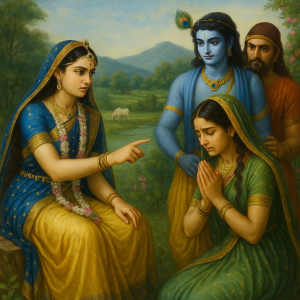The Offense Against Lakṣmī
In a prior cosmic age, King Vṛṣadhvaja, a powerful monarch, became an ardent devotee of Lord Śiva. So absorbed was he in devotion to Śiva that he prohibited the worship of any other deity, including Lord Viṣṇu and Goddess Lakṣmī. Offended by this neglect, Sūrya, the sun-god, cursed the king to lose all prosperity, and as a result, Lakṣmī Devī withdrew from his kingdom.
In time, the king’s descendants, Dharmadhvaja and Kuśadhvaja, realized the mistake of their forefather and sought to regain divine favor. They performed severe austerities and pleased Goddess Lakṣmī, praying for her mercy.
Lakṣmī’s Descent as Tulasī
Moved by their devotion, Lakṣmī agreed to incarnate in their family. To Dharmadhvaja, she appeared as a beautiful girl named Tulasī, and to Kuśadhvaja, she took birth as Vedavatī, who would later become Sītā Devī.
Tulasī from childhood was drawn to the forest and spiritual life. As she grew older, her desire to serve Lord Nārāyaṇa intensified. Leaving the comforts of the palace, she went to the sacred Badarikāśrama, where she performed intense penance and austerity for thousands of years.
The Promise of Brahmā
Pleased with her resolve, Lord Brahmā appeared and revealed that her prayers would be fulfilled. However, he explained that she had a divine destiny: before uniting with Viṣṇu, she must first marry the great devotee Śaṅkhacūḍa, who was a partial incarnation of Sudāmā, Kṛṣṇa’s eternal friend.
Thus, the divine drama began, culminating in her marriage to Śaṅkhacūḍa, his eventual liberation, her transformation into the Tulasī plant, and her eternal union with Lord Viṣṇu as Śālagrāma’s consort.
Lessons to Be Learned
- The Lord’s Devotees are Never Ordinary
- Though appearing as a human princess, Tulasī was Lakṣmī Herself, proving that divine beings often descend in humble or hidden forms.
- Devotion Awakens Even in Royal Life
- Surrounded by opulence, Tulasī yearned for spiritual austerity and bhakti, reminding us that true devotion transcends worldly status.
- Tapasya and Purity Bring Divine Blessings
- Tulasī’s long austerities earned her not just liberation but eternal service to the Lord. This emphasizes the power of śuddha-bhakti (pure devotion).



